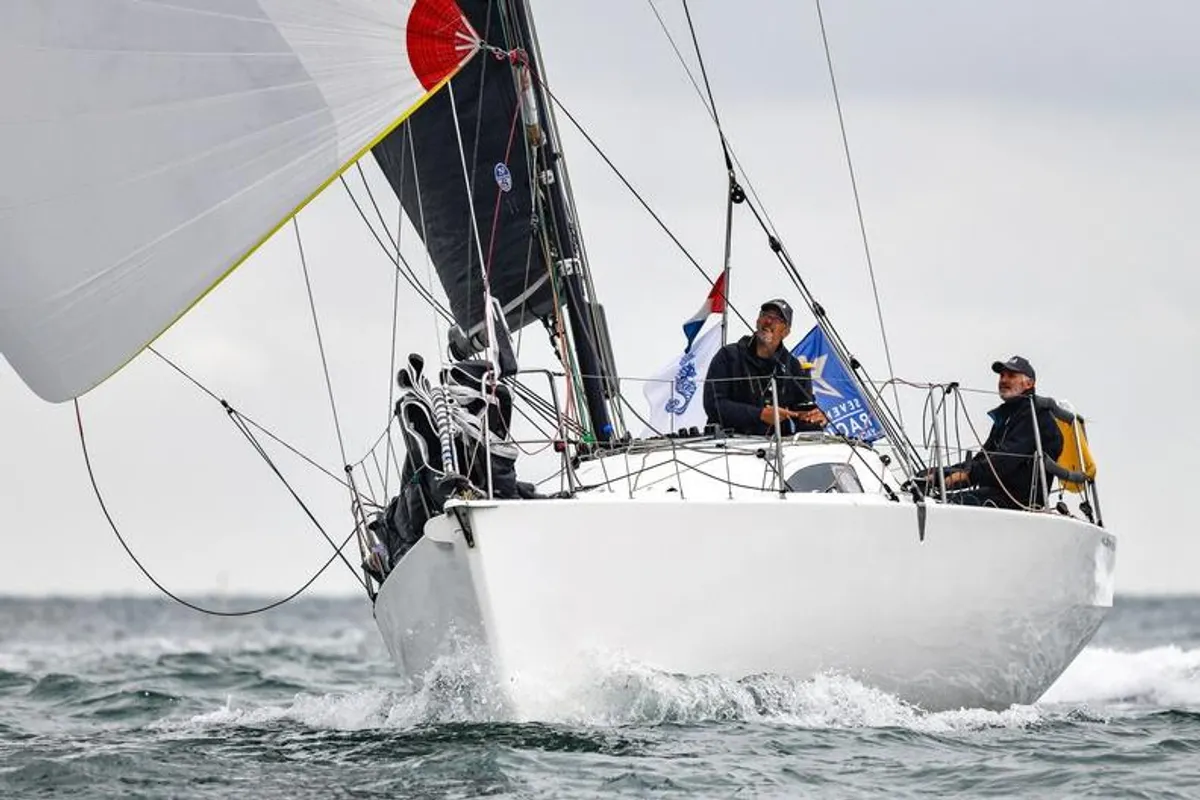This year’s international IRC Congress was held in Malta ahead of the Rolex Middle Sea Race, giving delegates the opportunity to see some of the impressive fleet arriving for the race.
The meeting was chaired by Michael Boyd, also Chairman of the IRC Board, and representatives of several countries were present along with the IRC teams from the UK and France, while others around the world participated by video conference, including some new national representatives who will further strengthen IRC. Participation is always enthusiastic, but showing particular dedication to IRC owners and the sport, the Australian Sailing Ratings Manager dialled in from an Xp44 racing in the inaugural Tollgate Islands Race, a 258nm IRC race going south from Sydney to Batemans Bays and back. Most IRC Congress members are sailors themselves so have direct experience on the water as well as talking to boat owners; that helps shape the proposals and decisions they make in the meeting room: IRC is truly a rule made by sailors for sailors.
The reports from each country provide the opportunity for a world tour of IRC racing which helps identify underlying trends. After two years disrupted by Covid, the situation is very positive and the number of boats rated is up sharply compared to last year.
Technical developments of the IRC rating rule
The trial launched this year in the southern hemisphere to introduce the ability for any boat to hold a secondary valid certificate met with great success, and Congress agreed to extend this rule worldwide from 2023. The Secondary certificate incorporates the short-handed certificate and its potential is wide ranging, from inshore/offshore to crewed/short-handed, or simply a different configuration for a single race. Also, in future the IRC certificate will include a page 2 which will include a basic drawing including the rated data to help owners and competitors easily see the rated configuration.
Double-handed racing is on the rise and those who also race fully crewed can hold two valid certificates in different configurations. The new Secondary Certificate incorporates the short-handed certificate with a wider variety of configuration options.
Whether on a 9-metre half tonner with five jibs, or on a TP 52 with its expansive wardrobe, the high number of sails carried or flown simultaneously on some boats is seen as contradictory to a rule that aims to be simple and economical. Congress agreed to a proposal to rate the number of headsails carried from 2024, and the IRC Technical Committee will publish more information during 2023. At the same time, the rating of flying headsails is being reviewed to make their use more attractive compared with setting multiple headsails.
IRC is committed to maintaining the principle of a single number rating rule capable of responding to an increasingly diversified range of boat types, and it is the role of the IRC Technical Committee to develop it with the view of always improving fairness across the fleet. With this in mind, Congress approved a change in age allowance to go beyond the current 20 years limit, allowing older boats to maintain their competitiveness and lifespan. IRC has become the rule of choice for IOR designs from the early 1970s to the 1990s and this year France created an IRC Vintage class to encompass these boats, with criteria including age and a restriction on modifications, which is likely to be adopted by other countries in future.
The evolution of events
Events are central to the success of IRC and there was enthusiasm among Congress members for more regional championships to be held, in the same way as the IRC European Championship, based around existing fleets and events. RORC also presented two exciting new concepts including a Commodores’ Cup in 2024 - a double-handed event with coastal and long-distance racing - and exciting developments for 2025 to coincide with RORC’s Centenary celebrations.
Overall, the 2022 Congress was a great success with the enthusiastic discussions illustrating the passion that our members have for IRC and for the sport and a positive outlook for the future. The rule changes that have been agreed, and the formulation development by the Technical Committee, promise to support the continued success of the IRC International rating rule around the world.
Image: Jangada racing to class victory in the 2022 Sevenstar Round Britain and Ireland Race © James Tomlinson/RORC
The IRC Congress Minutes and papers are published here: https://ircrating.org/about/irc-congress/
The 2023 agreed rule changes and full rule text will be published on ircrating.org when finalised.
